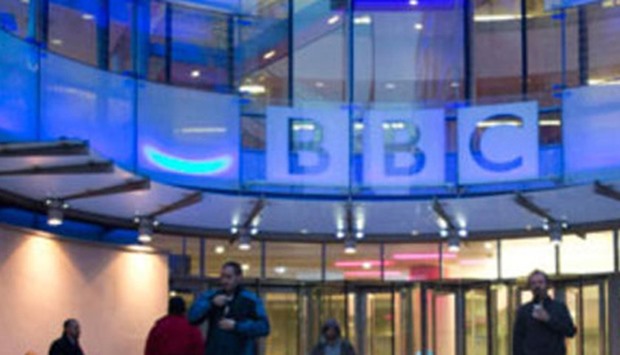The broadcaster would be regulated by an external organisation, the independent media watchdog Ofcom, for the first time in its 90-year history under the proposals in the government's white paper.
It would also have a new board to run day-to-day matters that could include government appointees, although the BBC would name at least half the members amid concern that its editorial independence could be compromised.
Media minister John Whittingdale is due to present the white paper in parliament later Thursday, and it will be debated by MPs later this year before a renewal of the BBC's governing charter is agreed.
Relations between Prime Minister David Cameron's centre-right Conservative party and the BBC have long been tense, with some MPs accusing the broadcaster of left-wing bias, which it denies.
Celebrities including James Bond star Daniel Craig and Harry Potter author J.K. Rowling have warned against cuts at the broadcaster -- nicknamed ‘Auntie’ due to its once-ubiquitous presence in British homes.
The BBC is currently funded through an annual licence fee of £145.50 (184 euros, $210) which all British households with a television have to pay.
This raises over £3.7 billion per year.
The BBC has already been forced cut jobs and budgets in an austerity drive after agreeing last year to pay the £600 million annual cost of providing free television licences for people aged over 75, which had been previously funded by the government.
Under the plans due to be unveiled on Thursday, the licence fee would be allowed to rise in line with inflation and viewers would be charged to watch programmes on the BBC's iPlayer digital platform.
‘This will give the BBC the financial certainty it needs and increase its independence from government,’ read an extract from the white paper released to the media ahead of its official publication.
‘The BBC is a world-class broadcaster and one of our country's greatest institutions. Our plans will mean that the BBC will keep making the great programmes we love and will continue to thrive in the future,’ a government source said.
The BBC Trust, which currently regulates the broadcaster, would be abolished and the BBC would have to disclose salaries of employees that exceed the director general's pay of £450,000 a year.
Lawmaker Waheed Alli, founder of the Great BBC Campaign, said that ‘any changes must not compromise the BBC's independence, affect the BBC's funding from the licence fee or diminish the BBC's mission to educate, inform and entertain the whole country’.

